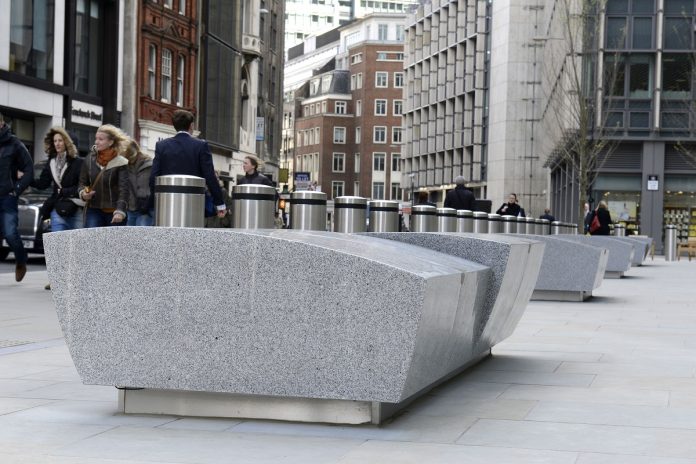James Kelly, Chief Executive of the British Security Industry Association, looks at some of the most effective methods of securing large scale events
In the wake of recent terror attacks on British soil, such as that of Westminster, Manchester and London Bridge, it is essential that the general public is aware of, and have confidence in, the vital role that security products and services play in keeping our nation safe.
Hostile vehicle mitigation
Recently, terror attacks in both England and Europe have seen vehicles as being a primary method of attack, targeting public open spaces, which are more vulnerable to these types of threats. Discussing hostile vehicle attacks, Alan Meyrick, Senior Risk Analyst at G4S Risk Consultancy, commented: “the main focus of such attacks are public open spaces and temporary events – such as markets, outdoor music events and festivals, sites that have limited permanent perimeter security and that are considered ‘soft targets’, thus increasing the likelihood of mass casualties.” As a result of this growing threat, it is important that event organisers build hostile vehicle mitigation (HVM) tactics into their security plans. This requires careful thought out the planning of the necessary security barriers as well as how they fit into the surrounding streetscape. “Hostile vehicle mitigation in various forms, is – and has been – the initial ‘go-to’ products to stop such attacks (as those in Nice, Berlin and London), as well as Vehicle Borne Improvised Explosive Devices (VBIED) attacks such as the Glasgow Airport attack in 2007,” explains Alan. “HVM in different forms, including bollards, concrete planters, concrete benches and other physical architecture, are all used.”
Event organisers will need to consider the most suitable HVM techniques to suit the event, taking into account the cost of the installation and the suitability of the solution. “Existing infrastructure and utilities, existing hardware and hard landscaping, the proximity to points of egress or access, as well as integration with the existing streetscape and how HVM methods may impact pedestrians and vehicular movement are all key considerations,” Alan adds. If HVM methods are employed, it is also important to be aware of the standards that such methods should meet with. There are a number of standards that provide a benchmark for HVM equipment, as well as guidance for the installation of products. Perhaps the most relevant for HVM is the British Standard Institute’s PAS 68 – Impact Test Specification for Vehicle Security Barriers, which is the UK standard and the security industry benchmark for HVM equipment. Any equipment should be tested in conjunction with PAS 69 – Guidance for the Selection, Installation and Use of Vehicle Security Barrier Systems, which provides product installation guidance.
Event security – best practice
With large-scale events finding themselves as the targets of terror attacks in recent years, the importance of choosing quality event security suppliers should not be overlooked. Discussing some of the essential elements of event security, Andrew Murphy, Managing Director of Eventsec, explained: “When reviewing security at events, purchasers should consider various factors prior to their decision. Many companies offer event security, however, many do not have the relevant experience or operational capacity to perform the role. It is very important that the organiser checks if the prospective company has appropriate insurance. It is also important that purchasers review the insurance cover and clarify with the underwriter as to what insurance is in place and whether it covers events and issues such as wilful acts, the front of stage and ejection.”
Andrew went on to add that: “With the present severe UK warning, it is important that we constantly monitor our security provision. It is essential that whoever is engaged, has relevant experience, has the operational capacity and can provide assurances to the organiser with regards to recruitment, vetting and training. This can be ascertained and qualified by companies who hold membership of trade bodies and have external accreditations such as ISO 9001 and Investors in People as an example.
“Events are complex and often have multi-layered security plans. It is important that the organiser, statutory agencies and the public, have confidence in the security provider. Often, the cost is the most important factor to organisers, but in light of recent events, staff experience, training and the supporting management structure will help mitigate the impact of incidents and should help the procurement decision. The staff employed in Manchester during the recent attack should be commended, demonstrating immense bravery and resilience as the first responders in what was a truly awful situation. Events will continue and resolve is strong, I would encourage event organisers to review their procedures and decision-making procedures when procuring security. They should ensure when it comes to procuring security that they engage with experienced and reputable operators. It is important that we minimise the impact of all hazards, and events pose many risks. Therefore, it is very important that event organisers understand and recognise their responsibilities. The procurement of experienced and reputable companies will help ensure the safety of all attending events and mitigate when incidents occur.”
James Kelly
Chief Executive
British Security Industry Association (BSIA)











